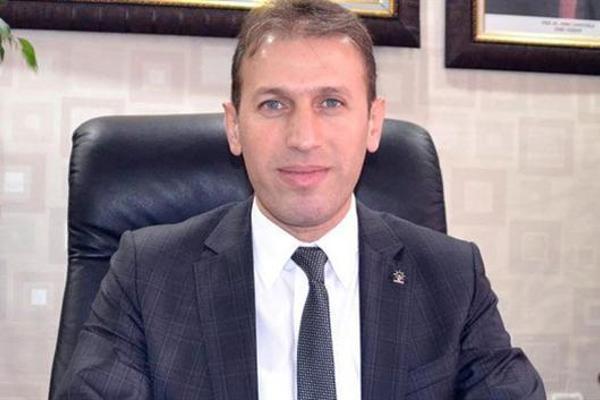Get ready for Erdoğan’s caliphate, Turkey’s ruling party official says
SİİRT


Fuat Özgür Çalapkulu, the head of the AKP in the eastern province of Siirt, sent the controversial tweet on March 17.
The head of a provincial branch of Turkey’s ruling Justice and Development Party (AKP) has stirred the pot by tweeting that the country should “get ready for the caliphate” of President Recep Tayyip Erdoğan.Fuat Özgür Çalapkulu, the head of the AKP in the eastern province of Siirt, sent the controversial tweet on March 17, hours after Selahattin Demirtaş, the co-leader of the Peoples’ Democratic Party (HDP), said his party “will never let you be president [in a presidential system].”
In his tweet, Çalapkulu said Erdoğan’s opponents had in the past claimed that Erdoğan could not even be a village headman, but in fact he managed to rise to the top of the Turkish state.
“Now they are saying he cannot be president [under a presidential system]. The caliph is coming, get ready,” he added, referring to Erdoğan as “the tall man,” like many of his supporters.
A caliph is a spiritual leader of Islam who claims succession from Prophet Muhammad. The word, stemming from the Arabic khalifa meaning “successor,” has been the focus of much debate since being claimed by the Islamic State of Iraq and the Levant (ISIL).
After his tweet triggered an outcry, Çalapkulu changed the status of his Twitter account to “protected,” ensuring that only confirmed followers have access to his tweets. He also released a written statement on March 19, saying he has a different “perception” of the word “caliph.”
“I use this word to refer to a leader who has command of all the problems, institutions and administration of his country; a leader who is the independent and powerful voice of the world’s downtrodden; the protector of the oppressed; a good, successful, pioneering and visionary leader,” he said in the statement.
Çalapkulu, who was appointed to his office 45 days ago, also stressed that his “peacefully expressed” views should be respected within the scope of freedom of thought.
